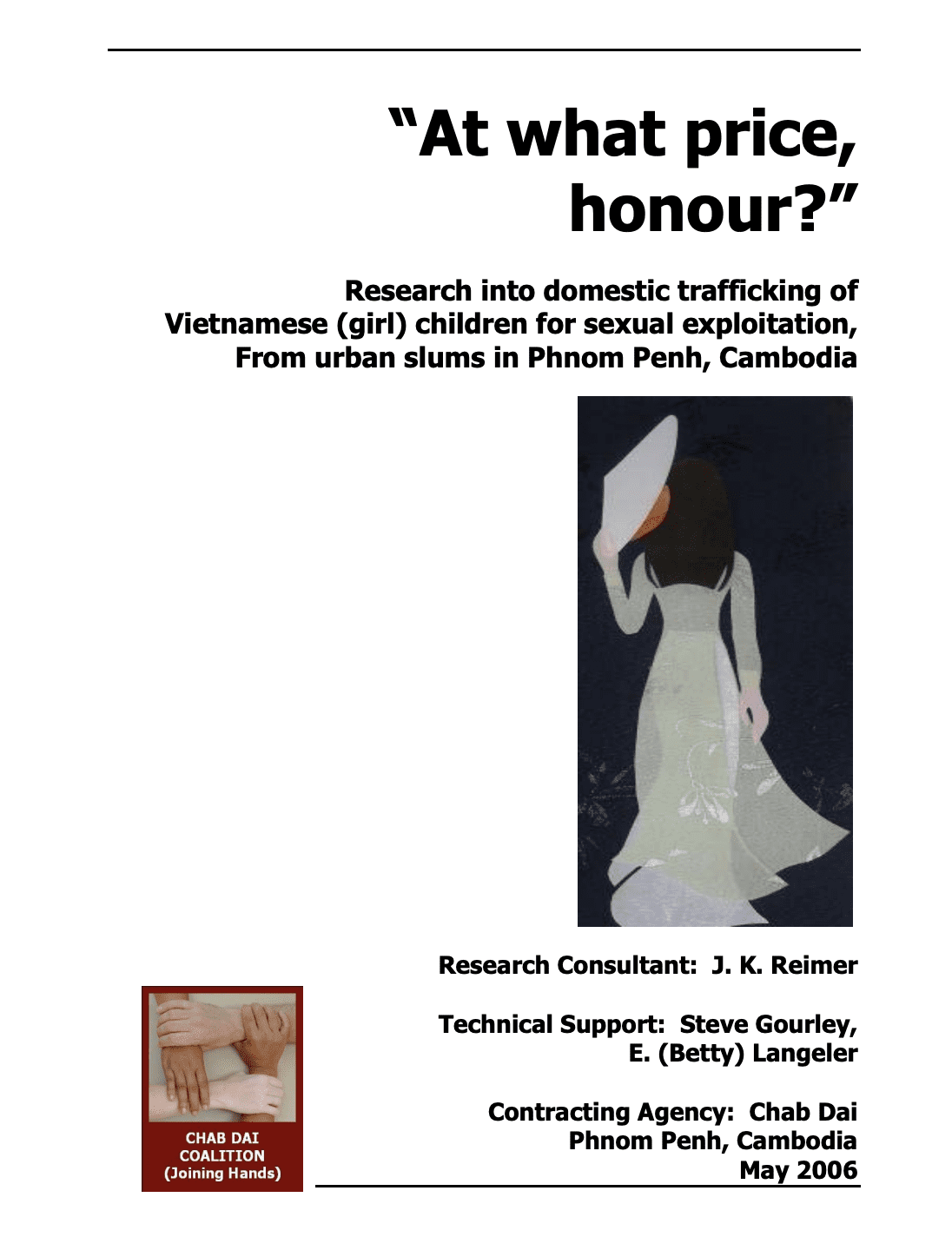
“At what price, honour?” Research into domestic trafficking of Vietnamese (girl) children for sexual exploitation, From urban slums in Phnom Penh, Cambodia
EXECUTIVE SUMMARY
The overall situation in Cambodia for human trafficking and sexual exploitation of women and children is dire1 : rather than decreasing it appears to be on the increase. Although there is recent attention to addressing various aspects of the issue/s, even for the Khmer majority population there are numerous ‘push factors’ (such as widespread poverty, high unemployment, low levels of literacy, and few income earning opportunities for women) that make sale of children for labour and prostitution serious considerations for many families. There are relatively few resources available for victim support, a weak and not well understood or enforced legal framework for prosecution of perpetrators, and many cultural traits that conspire to sanction trafficking and commercial sex. The situation for Vietnamese living in urban Cambodia vis-à-vis trafficking and sexual exploitation is even more difficult than for Khmer, as the Vietnamese are a marginalised minority. Some services area available for victims of trafficking, regardless of age or ethnicity; however these are not always well-equipped to accommodate Vietnamese.
The concept of ‘poverty’ emerges quickly in any discussion about “why families would sell their children” as one variable, and not necessarily even the primary consideration. It is always the result of a combination of factors. This research did not identify one clear, single, or overriding ‘tipping’ point. Findings from this research corroborate previous research publications on vulnerability factors that influence the sale of children into commercial sex. One difference in this research is the weight of particular variables exacerbated by the fact of being Vietnamese in Cambodia, which is itself a vulnerability factor.
The major risk factors (named as such because they surfaced most frequently in conversation with respondents) among the Vietnamese communities surveyed in this research—the presence of which will make the sale of a child more likely—appear to be as follows: crisis/extra-ordinary expenses; debt; the phenomenon of ‘normalisation’; materialism; family honour; cultural perceptions of the value/place of women. All must be considered to occur within the context of general poverty and the psychological burden of uncertainty and insecurity accompanying it; as well as with recognition for the political uncertainty that characterises the lives of the Vietnamese minority in urban Cambodia. The research considers too the extent to which the social context may bear some responsibility for the ‘epidemic’ of sale of children for sexual exploitation.
The research suggests that nearly half of families do sell a girlchild (a ‘best estimate’ is 30-40 percent) for sex; and that more families consider this as an option than actually follow-through with the sale. It appears that under-age girls are more likely to be sold for virginity (then return home), than sold into longer-term prostitution/brothel work. Longer-term decisions seem to be the purview of older girls/women. Community perceptions of prostitution as a viable income source seem to be grounded in a certain pragmatism and resignation, rather than wholehearted acceptance of the work as legitimate, constructive, or desirable.
There is a very high level of awareness among children and adults about the presence of trafficking (sale of girl-children for sex), and prostitution more generally. Many children expressed that they felt themselves in danger of being sold or otherwise forced into involvement in the sex trade: a few said if someone did try to force them they would ‘fight’ but the majority said they would not like it, but would be resigned to going.
Read more here.
